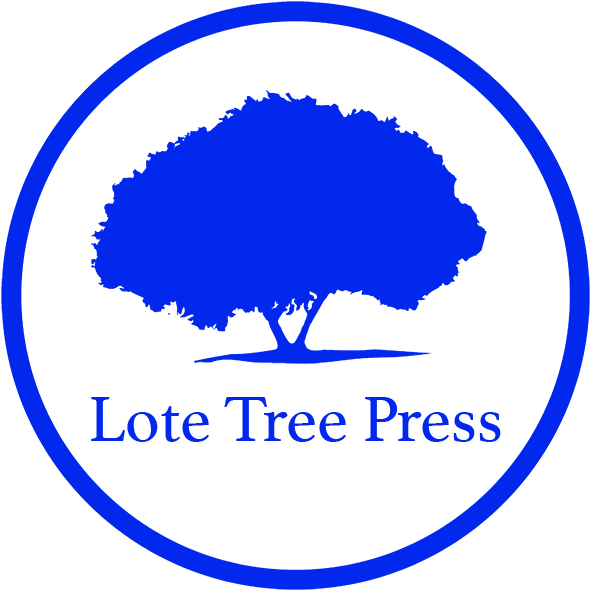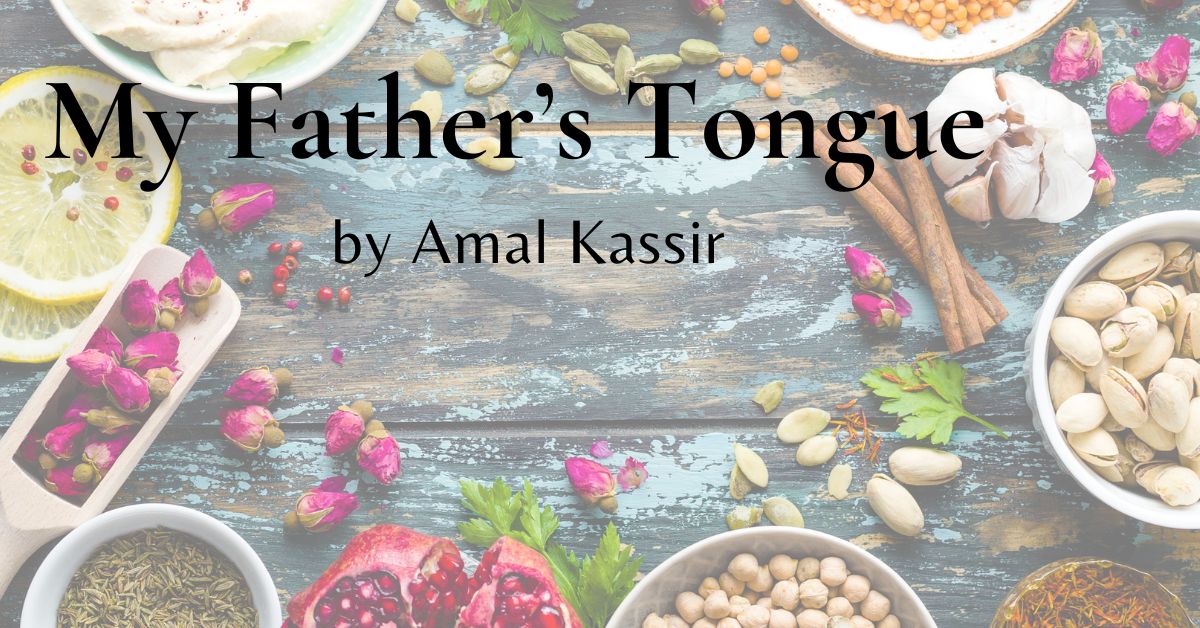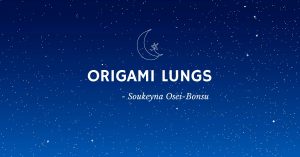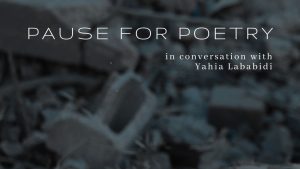I once asked my father
what language he dreams in
and he did not know the answer to this question.
In fact,
the question startled him.
He’s spent more of his life here in America
than in his motherland-
and here he is,
a man who’s mastered both languages,
not sure which he dreams in.
I remember the only time I saw my father stutter-
it was in a crowded grocery parking lot.
He was taken aback,
& did not have enough stripes or stars on his tongue
to muster a response to the bigot
who called him something with an f word,
an n word-
a terrorist.
It’s like my father did not have the tongue to respond-
Imagine, a man without a tongue–
he was tripping over his own voice
like it was like a herd of wild horses
he could not tame
I could see the heat in his body from this powerlessness,
Nothing will render a person more powerless
then their voice escaping them.
This man,
My Baba,
Speechless?
He is the son of a poet,
the child of a mother of fourteen,
He is an Arab,
From Lughat Ad’ad
He possesses letters
Not found in any other dialect on the planet
A man whose own sister was deaf,
That he helped create her language.
A man who has memorized so many chapters in the Quran
with tajweed,
One who has managed to make friends
From El Salvador to Togo,
Using his English or his Arabic
or his etiquette or whatever else he can find-
one who can tell a joke in two languages.
My father,
A man so well-versed in this world,
And still he did not have the tongue to respond
to the bigot at the grocery store
I ask my father what language he dreams in
And he does not know the answer to this question.
He’s spent more of his life here in America
Than in his motherland-
a man who’s mastered both languages,
unsure of which he dreams in,
because he probably dreams in both-
My father gets his livelihood from feeding people food,
From catering to their tastebuds,
What ever culture they may come from.
Baba couldn’t pick one country
so he put his motherland into restaurants
so that everyone could have it on their tongue—
so everyone knew what tabbouleh tastes like,
so that the English language could transliterate it well enough
to settle in their mouth
So that even the bigots who walked into our restaurant
would find out that the American dream
was dreamt up in another language.
He would spend 5 minutes at a table
teaching customers the correct pronunciation
of the foods on our menus,
of our hellos and goodbyes,
& peace be upon you’s
My father was not the type of man who stuttered,
he was never speechless-
he’s got a story for every word you give him,
he’s got a hadith for any piece of advice you need.
I think God decided that a man whose tongue is this holy
shouldn’t even bother responding.
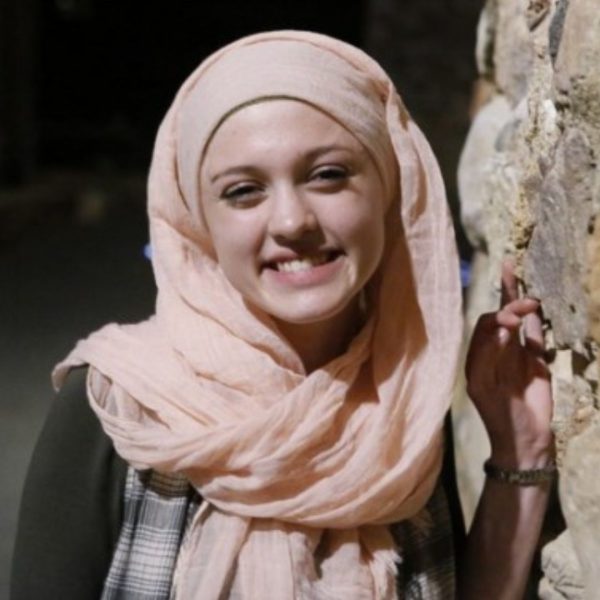
About the Poet
Amal Kassir is a Syrian American poet, born and raised in Denver Colorado to an Arab father and an American convert mother. She has performed & taught in 13 countries and cities all over, in venues ranging from orphanages to refugee camps to youth prisons to churches. At the University of Colorado Denver, she designed her own undergraduate major, titled Community Programming in Social Psychology, where she has been able to create programs for a range of causes and people. She is currently a youth mentor, a writing teacher, and a traveling poet. She is the founder of House of Amal, an online writing community that sits at the intersection of creativity, introspection and literature. She is also the program manager of the Mental Wellness Program for Muslim Youth for Positive Impact in Colorado, working to create access and dismantle the stigma around mental health in the Muslim Community.
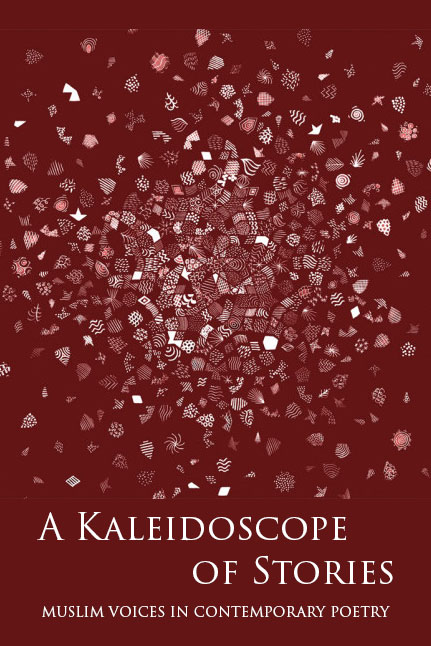
This poem appears in A KALEIDOSCOPE OF STORIES - Muslim Voices in Contemporary Poetry
A KALEIDOSCOPE OF STORIES - Muslim Voices in Contemporary Poetry brings together the myriad voices of eighty Muslim poets from diverse backgrounds to powerfully articulate what it means to be Muslim in the modern world. It provides a platform for Muslim voices to be heard speaking about their experiences in their own words, and offers an antidote to the stereotyped, one-dimensional portrayal of Muslims we see so often in the media. The anthology gives the reader a glimpse of the thoughts, hopes and challenges of those who see the world through two or more cultural lenses and provides an authentically Muslim space for the expression of our spiritual, social and personal lives. It brings together the verses of multi-generational voices exploring themes including love and loss, identity and belonging and Islamic spirituality.
